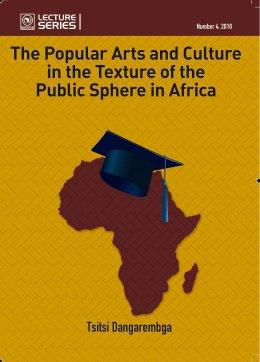The Popular Arts and Culture in the Texture of the Public Sphere in Africa
Keywords:
Popular Arts, Culture, Public Sphere, TextureSynopsis
This lecture plots the African experience in a projectory that rejects binarism and seeks to construct a unitary socio-psychological map of that experience, thereby positing what has been seen to be fragmented in past theorising as a functional whole. It refers to liberal theories of the public space and posits these with emerging continental thought to construct the notion of the ‘African not I’ as a psychological entity that functions in the mainstream to discount African experience. The lecture concludes by suggesting ways in which popular culture may be used in residual public spheres to bolster positive subjective consciousness.
Downloads
References
Cheater, A., 1999, Power In the Post-Modern Era, in Cheater, A., ed., The Anthropology of Power, Routledge, London.
Calhoun, C., ‘Imagining Solidarity: Cosmopolitanism, Constitutional Patriotism and the Public Sphere’, Public Culture, 14, 1.
Fanon, F., 1970, Black skin, White Masks, Paladin, St Albans.
Gourevitch, P., 2000, We wish to Inform You That Tomorrow We Will Be Killed With Our Families: Stories from Rwanda, Picador, Basingstoke.
Habermas, J., 1989, The Structural Transformation of the Public Sphere: An Inquiry into a Category of Bourgeois Society, Polity Press, London.
Mulvey, L., 1990, ‘Visual Pleasure and Narrative Cinema, 1975’, in Erens, P., ed., Issues in Feminist Film Criticism, Indiana Univerity Press, Bloomington.
Ndlovu-Gatsheni, S. J., 2008, ‘Nativism and the Debate on African Public Sphere in Postcolonial Africa: Reflections on a Problematic ‘Reverse Discourse’’, Conference paper, CODESRIA, 12th General Assembly, Yaoundé.
Ngugi, w.T., 1987, Decolonising the Mind: The Politics of Language in African Literature, Zimbabwe Publishing House, Harare.
Shohat, E. and Stamm, R., 1995, Unthinking Eurocentrism: Multiculturalism and the Media, Routledge, New York.






